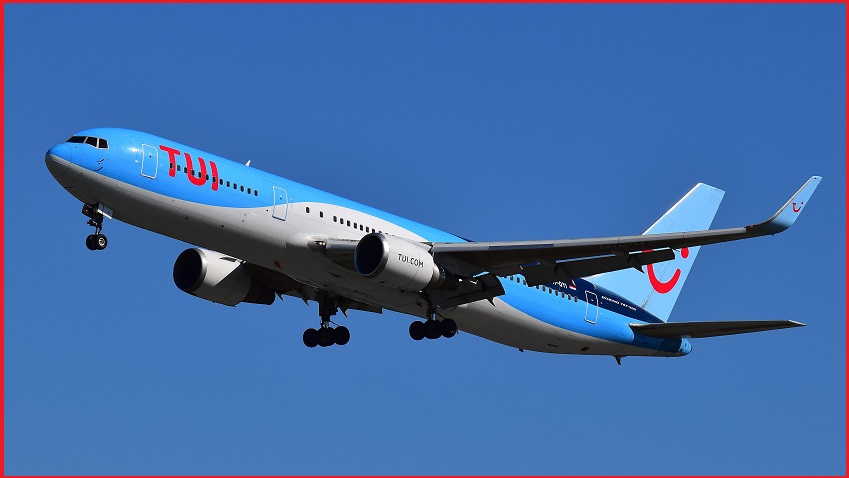A software error was responsible for three British passenger planes taking off with much more weight than listed, in what could have been a catastrophic mistake.
One of the takeoffs was classified as a ‘serious incident’ by the Air Accidents Investigation Branch (AAIB) due to the IT system causing the plane to take off with 1,244kg more than expected.
The mistake caused the plane to take-off with less thrust than required.
The Boeing 737 operated, by UK airline Tui, was due to fly out from Birmingham Airport to Spain mid-last year with 187 passengers on-board including 38 women who were mistakenly entered as ‘children’ when booking their flight, due to a software glitch.
For those 38 women, the booking system incorrectly interpreted their title (‘Miss’) as meaning they were a child and gave each of them the standard child’s weight of 35kg rather than the standard female weight of 69 kg.
As a result of the discrepancy, pre-flight calculations to determine the take-off airspeed were off, meaning the calculated thrust, given the conditions and weight of the aircraft, were “marginally less” than needed.
Thankfully, the 737 made it to Spain without issue and Tui said the “safe operation” of the aircraft was not affected.
“The health and safety of our customers and crew is always our primary concern,” Tui said in a statement.
“Following this isolated incident, we corrected a fault identified in our IT system.”
Fixing the problem
The three flights in late July weren’t the first time the booking error had occurred.
Nearly two weeks prior, three women had been incorrectly labelled as ‘children’ before boarding but the mistake was corrected and identified.
According to the AAIB report, Tui put in place a series of mitigation strategies to work around the buggy program which had been developed off-shore in a country where ‘Miss’ directly referred to a girl and ‘Ms’ referred to a woman.
Instead of fixing the problem, Tui adopted a manual process that “involved a team identifying upcoming flights, checking each booking, and changing all adult females with the title ‘Miss’ to ‘Ms’”.
“Subsequently, this work was shared between two teams, and the process was completed every afternoon and evening for the next day’s flights,” the AAIB report said.
“It was checked again every morning, where possible, before flights departed.”
Check-in staff with the airline were also instructed to double-check female passengers and make sure they were registered in the system under their correct age when they arrived at the boarding gate.
Meanwhile, the programmers initially tasked with upgrading Tui’s booking system applied another fix that would “change the title of any adult female [passenger] from Miss to Ms automatically” – only it didn’t work if the passenger checked-in online within 24 hours of the flight’s departure.
That poorly implemented fix, combined with different airline crew working weekends, meant the 737 headed from Birmingham to Palma de Mallorca in Spain was 1,244 kg heavier than its records showed.
Tui’s near-catastrophe highlights the growing reliance being placed on electronic systems for air travel and the need for greater cyber security.
This issue was which was made particularly evident in 2016 when an official with the US Department of Homeland Security hacked into a parked Boeing 757 using items he could get through airport security.
Major airlines also have a history of data breaches and mismanagement of customer information with Indian Airlines, Air New Zealand, and Cathay Pacific all suffering breaches in recent years.










